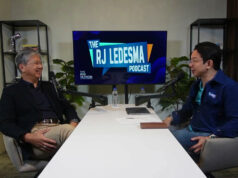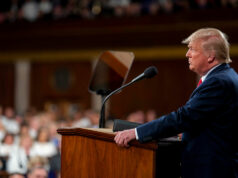One of President Manuel L. Quezon’s immortal quotables was, “My loyalty to my party ends where my loyalty to my country begins.” Sadly, both in the Philippines and in the United States, these are “famous lost words” — lost in the struggle for political survival.
Both President Donald Trump and President Rodrigo Duterte enjoy unprecedented approval among their respective voter bases, in sharp contrast to the criticism hurled by detractors. Duterte has been vilified as a killer and an uncouth potty-mouthed thug. And many Republicans privately concede that President Donald Trump is a congenital liar and prone to taking bizzare action, like insulting America’s closest allies, mounting a trade war, and siding with Russia’s Vladimir Putin against the entire intelligence and national security apparatus of the US.
But they have avoided frontally criticizing him for fear of a backlash from rabid Trump supporters. Even the way GOP leaders, House Speaker Paul Ryan and Senate Majority Leader Mitch McConnel, contradicted Trump on his position on Russian interference in the last US presidential election was muted and measured, at best.
Note that Trump’s public statements, following the Helsinki summit with Putin, were described by former CIA John Brennan as “nothing short of treasonous.”
But what some find difficult to understand is the attitude of Trump’s voter base towards allegations of collusion — or even conspiracy — between Trump and the Russians. According to one survey (by Public Policy Polling), 77% of Trump voters believed that he should continue to serve as president “even if it’s proven that he conspired with Russia to sway the 2016 election.” Only 14% said Trump should resign if collusion is proven.
However, this attitude does not necessarily translate into disloyalty to their country, as far as these Trump supporters are concerned. According to analysts, “party, ideology and race play key roles in Trump’s approval. Americans’ views of Donald Trump’s handling of his job as president are largely shaped by the same social fissures that have long divided the US.”
If you consider that Trump’s voter base consists mainly of non-Hispanic whites (including neo-Nazis and white supremacists), and if you consider, further, that the previous president, Barack Obama, was black, it becomes easier to understand the distinction between loyalty to Trump and to fellow whites vs. loyalty to the Russians.
In other words, these Trump supporters regarded — and still regard — the Democrats and Hillary Clinton as their “enemy” and going by the premise that “the enemy of my enemy is my friend” because Putin and the KGB helped Trump defeat Clinton, the Russians, in effect, became friends of the Trump loyalists.
One rabid Trump supporter argues that this not make him disloyal to America. Of course, one can also argue that such a rationale is called weaseling and that, whether they are doing it consciously or not, when they approve of a foreign country sabotaging the very foundation of American democracy — its electoral process — that is an act of disloyalty.
Wasn’t it the Lord Jesus Christ Himself who said, “He who is not with me is against me!”?
Concerning Trump’s dalliance with a porn actress and a Playboy bunny, these Trump supporters don’t care because “that’s what powerful men do.” And they made references to Presidents John F. Kennedy and Bill Clinton.
Trump’s latest approval rating among Republican voters, according to Gallup, is at a high 85%, although among independents and Democrats, he rates a measly 37% and 11%, respectively. Among all voters, Trump’s approval rating is just slightly above 40% and disapproval is upwards of 50%.
Those who hold Trump in high regard believe he has been good for the US. Tax reform is considered among his major accomplishments and the brisk US economy has been attributed to his administration. Apparently, for these, Trump loyalists have been willing to overlook his sins.
The question one is constrained to ask Trump supporters and the Republican leadership is, “When does loyalty to party, ideology and race end, and when does loyalty to country begin?”
In Philippine politics, asking that very same question is like talking to the wind. In a political environment where the quest for power and wealth is paramount, loyalty to the country sounds like too much mushy stuff.
While President Rodrigo Duterte more than matches Trump in terms of the near-fanatical loyalty of his supporters, that “loyalty” is, likely, more self-serving than selfless.
In the first place, there is no such concept as “ideology” in Philippine politics and a “party” is simply a basis for gaining official recognition, the better to forge alliances with whoever is in power. And that, in turn, is determined by who assumes the presidency.
Because of the power over the purse and the power to appoint people to high positions (as well as the power to dislodge them), President Rodrigo Duterte holds the reins, calls the shots, and cracks the whip. Everyone else jumps.
The last public opinion polls placed Duterte’s approval rating at 70% “satisfied” vs. 14% “dissatisfied” and 17% “undecided.” The question asked in hushed tones is “what percentage of the Philippine military is satisfied or dissatisfied with Duterte?”
After EDSA One and EDSA Two, the role of the military as power broker is generally conceded, although nobody dares to publicly rouse the men-at-arms.
Meanwhile, Duterte has, understandably, made sure that the members of the Armed Forces are significantly benefited under his watch. One press release issued by military quarters cheerfully reported, “Starting this year, soldiers and police will get the partial adjustment in their salary until 2017 and by January 2018, take home pay will be doubled according to Department of Budget and Management (DBM).”
The news item also announced that, in addition to the salary increases, “soldiers, and their families will also be covered by administration programs from medical, health, social services, and education benefits for the soldiers and their families,” including substantial cash benefits and even a monthly sack of rice.
It can be assumed that the benefits and emoluments for the military brass are even more substantial. Given these, why would anyone want to stay a military coup?
Yet rumors persist about such a plot and administration officials continue to accuse the opposition of trying to “destabilize” the Duterte government.
In the wake of the Watergate scandal, a Republican-controlled legislature told a Republican president, Richard Nixon, to resign rather than face impeachment. Will today’s Republican-controlled Senate and House of Representatives do the same and place duty to country above loyalty to their personal political interests? Or will it take the dislodging of the Republicans by the Democrats in the coming mid-term elections for this to happen?
That is a question that hovers over Americans like a soap opera cliff hanger. As for Duterte, forget about impeaching him or staging a coup against him.
In the Philippines, loyalty to personal interests trumps loyalty to country any day of the week, including Sundays.
Greg B. Macabenta is an advertising and communications man shuttling between San Francisco and Manila and providing unique insights on issues from both perspectives.
gregmacabenta@hotmail.com



